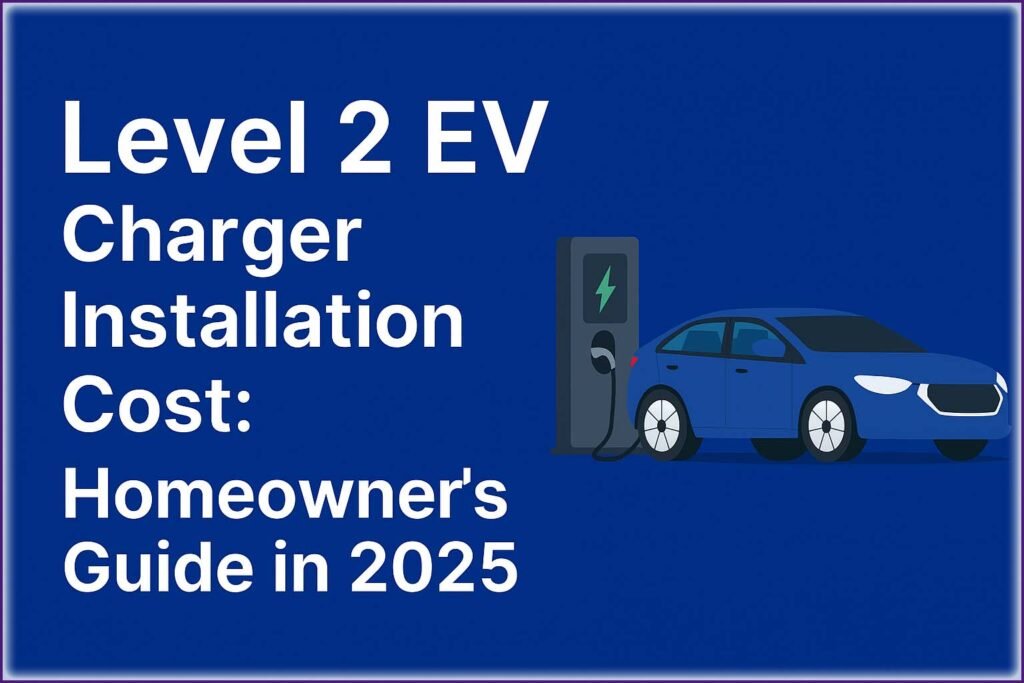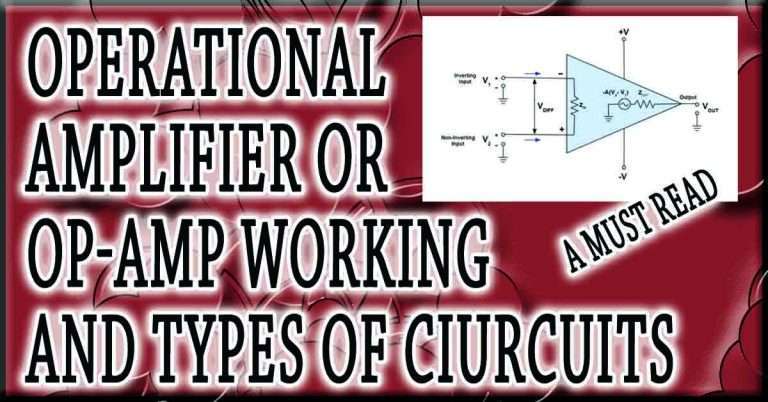Level 2 EV Charger Installation Cost: Homeowner’s Guide in 2025
Electric vehicles are no longer the future — they are the present. As more homeowners switch to EVs, the next big question is how to charge them conveniently at home. Among all options, a Level 2 EV charger offers the best balance between speed and cost. But before installing one, every homeowner wants to know the Level 2 EV charger installation cost in 2025.
This guide breaks down everything — from typical installation prices to influencing factors, hidden costs, government rebates, and smart buying tips — so you can make an informed decision and charge your EV the smart way.
Table of Contents
Table of Contents

A Level 2 EV charger is a mid-tier charging solution that uses a 240-volt power supply. It’s much faster than the basic Level 1 charger that comes with most EVs. While a Level 1 charger can take more than 24 hours to fully charge a car, a Level 2 can do it in 4 to 8 hours. That’s a huge convenience upgrade for daily driving.
If you’re planning to install a home charging station, understanding the Level 2 EV charger installation cost is essential to budgeting your total EV ownership cost in 2025.
Key Takeaways
- Average Level 2 EV charger installation cost in 2025 ranges from $800 to $2,000 including hardware and labor.
- The cost depends on factors like wiring distance, panel upgrade needs, and charger type.
- Smart chargers and high-amperage units cost more but offer faster charging and energy monitoring features.
- Many states and utility companies offer rebates up to 50% of the total installation cost.
- Professional installation ensures safety, warranty protection, and compliance with local electrical codes.
Know more about Electrify America Charging Adapter for Tesla – Everything You Need to Know Before You Buy
What Is a Level 2 EV Charger and Why It Matters
A Level 2 EV charger operates on a 240V circuit — similar to what powers an electric dryer or oven. It delivers between 16A to 80A of current depending on the model, providing 15 to 60 miles of driving range per hour of charging.
Unlike public DC fast chargers, Level 2 systems are affordable for home use. They’re designed to be installed in garages, driveways, or carports for easy overnight charging.
For most homeowners, a Level 2 charger strikes the perfect balance between installation cost and performance. It’s ideal for both daily commuters and multi-car EV households.
Average Level 2 EV Charger Installation Cost in 2025
The Level 2 EV charger installation cost in 2025 varies widely based on charger model, electrical upgrades, and local labor rates. However, an average homeowner in the U.S. can expect the following cost breakdown:
| Installation Type | Average Cost (USD) | Includes |
|---|---|---|
| Basic Installation (Near Panel) | $800 – $1,200 | Charger + Labor (No Panel Upgrade) |
| Standard Installation | $1,200 – $1,800 | Moderate Wiring, 240V Circuit, Labor |
| Complex Installation | $1,800 – $2,500+ | Panel Upgrade, Long Cable Runs, Permits |
If you already have a 240V outlet near your parking spot, installation can be as low as $500. But if your home needs panel upgrades or long wire runs, it may exceed $2,000.
Factors Affecting Level 2 EV Charger Installation Cost
Several key factors influence how much you’ll pay for your installation in 2025:
1. Electrical Panel Capacity
If your electrical panel doesn’t have enough capacity for a new 240V circuit, an upgrade is needed. This alone can add $500 to $1,500 to the installation. Modern homes often have 200A service, but older ones might need upgrades.
2. Distance from Panel to Charger
The longer the wiring distance, the higher the labor and material cost. Installations with long runs (over 50 feet) may require extra conduit and copper wiring, costing an additional $200–$600.
Know more about Tesla Wall Connector Lifespan: How Long It Lasts & Warranty Info
3. Charger Type and Amperage
High-powered units (like 48A or 80A) cost more to install than 32A models due to thicker wires and larger breakers. Expect a $100–$300 difference.
4. Smart Features
Wi-Fi-enabled “smart chargers” with mobile app control or solar integration cost $150–$400 more but help track electricity use and optimize charging during off-peak hours.
5. Mounting and Weatherproofing
If you install outdoors, waterproof enclosures and weatherproof conduit add $100–$300 extra. Wall-mounted indoor chargers are usually cheaper to install.
6. Permit and Inspection Fees
Many cities require electrical permits for EV charger installations. Fees range from $50 to $250, depending on local regulations.
Typical Equipment Costs in 2025
| Equipment Type | Price Range (USD) | Examples |
|---|---|---|
| Standard Level 2 (32A–40A) | $400 – $700 | JuiceBox 40, ChargePoint Home Flex |
| Smart Level 2 (Wi-Fi, App Control) | $700 – $1,000 | Tesla Wall Connector, Emporia Level 2 |
| Heavy-Duty (48A–80A) | $900 – $1,300 | Wallbox Pulsar Plus, Grizzl-E Extreme |
Buying your own charger online often saves money compared to electrician-supplied units. Always ensure UL certification and compatibility with your EV.
DIY vs Professional Installation
Technically, a knowledgeable homeowner could install a Level 2 charger. However, it’s not recommended unless you’re a licensed electrician. Working with 240V circuits poses real electrical hazards.
Professional electricians ensure:
- Proper circuit sizing
- Grounding and breaker protection
- Compliance with NEC (National Electrical Code)
- Full warranty validation
Know more about EV Charger Not Charging to 100%? Common Causes & Solutions
Most EV manufacturers and insurance companies require professional installation for warranty coverage and safety assurance.
Home vs Public Charging Cost Comparison
| Charging Type | Cost per kWh | Estimated Cost per Full Charge (60 kWh EV) | Charging Speed |
|---|---|---|---|
| Level 1 (120V Outlet) | $0.15 | $9 | 24+ hours |
| Level 2 (Home Installation) | $0.15 | $9 | 4–8 hours |
| Public Level 2 | $0.20 – $0.30 | $12–$18 | 4–8 hours |
| DC Fast Charger | $0.35 – $0.50 | $21–$30 | <1 hour |
Home charging is significantly cheaper long-term. Even with installation costs included, most homeowners recover the investment within 2 to 3 years through fuel savings compared to gasoline.
Rebates and Incentives for 2025
In 2025, many U.S. states, utilities, and federal programs still offer attractive rebates for EV charger installations. These can offset 30% to 50% of the total cost.
Examples include:
- Federal Clean Energy Tax Credit (IRS Form 8911): 30% credit on EV charger installation, up to $1,000 for homeowners.
- Utility Company Rebates: Some utilities like PG&E, Duke Energy, and Xcel Energy offer $200–$600 cash-back programs.
- Local Incentives: Cities such as Los Angeles and Austin provide additional grants for EV infrastructure.
Always check your state’s official EV incentive portal before installation to maximize savings.
How to Reduce Level 2 EV Charger Installation Cost
If you’re budget-conscious, here are a few ways to keep your Level 2 EV charger installation cost lower:
- Choose a wall-mounted indoor charger to avoid outdoor weatherproofing expenses.
- Install the charger close to the main panel to reduce wire length.
- Bundle installation with other electrical upgrades (like solar inverter or subpanel) for better labor pricing.
- Compare quotes from at least three licensed electricians.
- Use rebate programs and file for tax credits promptly.
Smart planning and a bit of research can easily save $500–$1,000 on your total project.
Know more about How to Reset Your ChargePoint Home Charger: Best Guide
How Long Does Installation Take?
Most Level 2 EV charger installations are completed in 3–5 hours. Complex cases involving panel upgrades or trenching may take a full day. Electricians usually test the charger after installation to confirm safe operation and optimal performance.
Should You Get a Smart Level 2 Charger?
In 2025, smart chargers are becoming the new standard. They connect to Wi-Fi and allow:
- Remote monitoring via smartphone
- Scheduling for off-peak electricity rates
- Integration with solar systems and home batteries
Although they cost slightly more upfront, they can save hundreds of dollars per year on electricity through smart energy management.
If you plan to own your EV for several years, a smart Level 2 charger is a worthwhile investment.
Is Level 2 Charging Safe for Your Home?
Yes, as long as it’s installed correctly. Licensed electricians ensure that the wiring, circuit breakers, and grounding are appropriate for the charger’s amperage. Many chargers also include built-in safety features like overcurrent protection and automatic shutoff.
It’s also advisable to install a surge protector or use a dedicated circuit to prevent overloads. Safety should always come before cost-cutting.
Final Thoughts on Level 2 EV Charger Installation Cost in 2025
The Level 2 EV charger installation cost in 2025 continues to be a smart and worthwhile investment for EV owners. With the average price ranging between $800 and $2,000, homeowners can enjoy fast, convenient, and affordable charging at home while increasing property value.
Know more about EV Charger Blinking Red? Here’s How to Fix the Issue: Step by Step
Rebates, falling equipment prices, and better smart technology are making installations more accessible than ever. When compared to public charging costs and fuel savings, most homeowners break even within just a few years.
If you’re ready to embrace EV ownership fully, upgrading to a Level 2 home charger is one of the best steps you can take — for convenience, efficiency, and long-term savings.
Follow Us on Social:
Subscribe our Newsletter on Electrical Insights for latest updates from Electrical Engineering Hub
#Level2EVCharger, #EVChargerInstallation, #ElectricVehicleCharging, #HomeEVCharger, #EVChargerCost, #EVCharging2025, #ElectricCarCharger, #SustainableLiving, #EVHomeSetup, #EVChargerGuide, #GoElectric, #EVInfrastructure, #EVChargerInstallationCost, #HomeChargingStation, #EVRevolution


